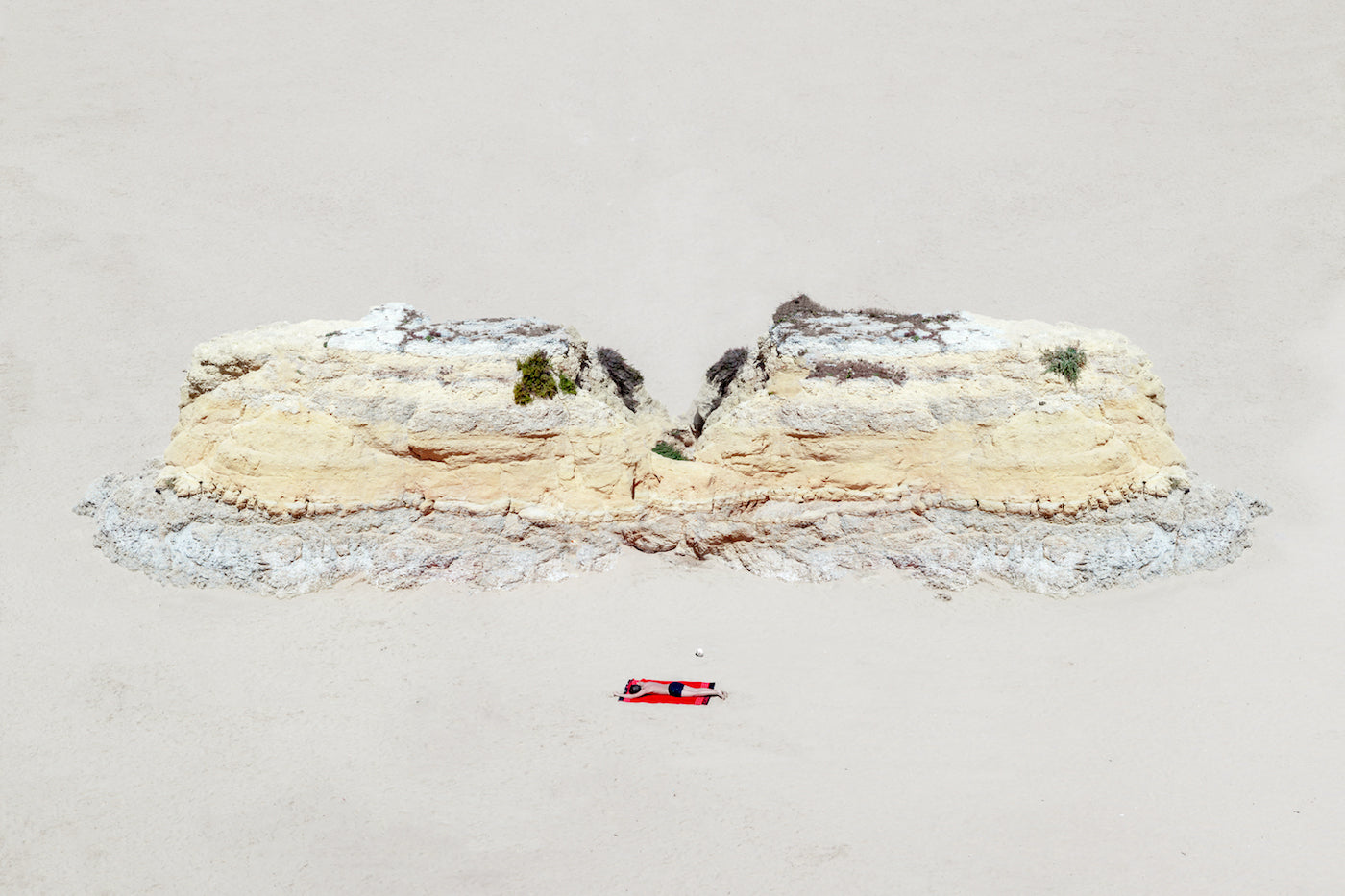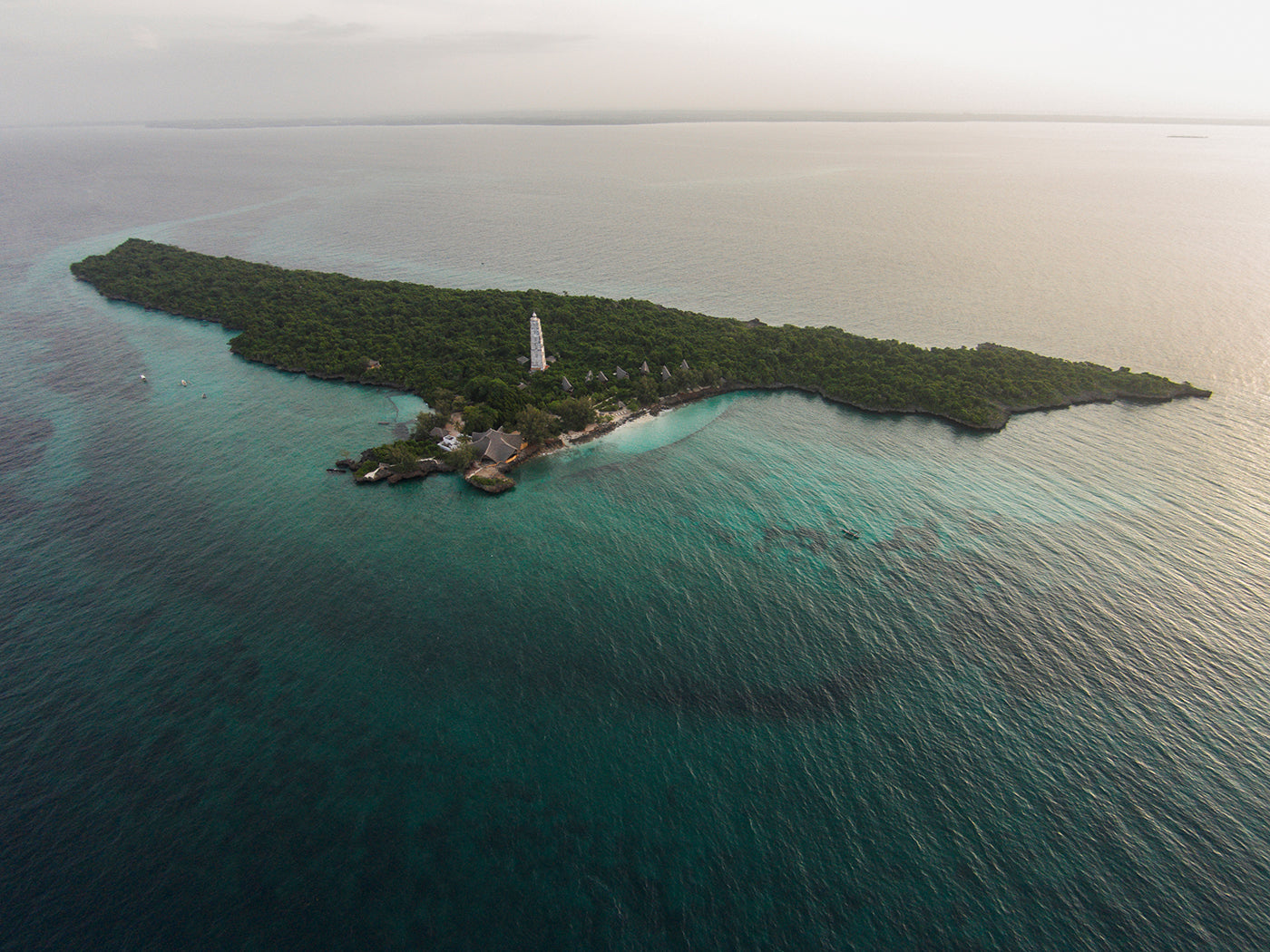
On The Forefront Of Eco-Education At Chumbe Island
Off the coast of Zanzibar, Sibylle Riedmiller has created a marine protected haven
Sibylle Riedmiller has always loved the sea. After arriving in Tanga, a small Tanzanian town on the coast of the Indian Ocean, in 1982 to manage a school reform in the context of a development aid project, the German project manager soon became a passionate sailor, snorkeler, and diver in her spare time. Fascinated by the incredible beauty of coral reefs, it came as a shock when she discovered their destruction by rampant dynamite fishing.
"I started dreaming. Why not combine my professional experience in project management and my marine hobbies to create something I really believed in? I had lost faith in the effectiveness and sustainability of donor aid so quit a highly paid job and decided to stay and invest in Tanzania"
Fast forward a few years to 1991 and during a trip to Zanzibar for a consultancy job, she found that, even among fishermen, coral reefs were still considered lifeless rocks, not natural habitats for millions of species of marine life.
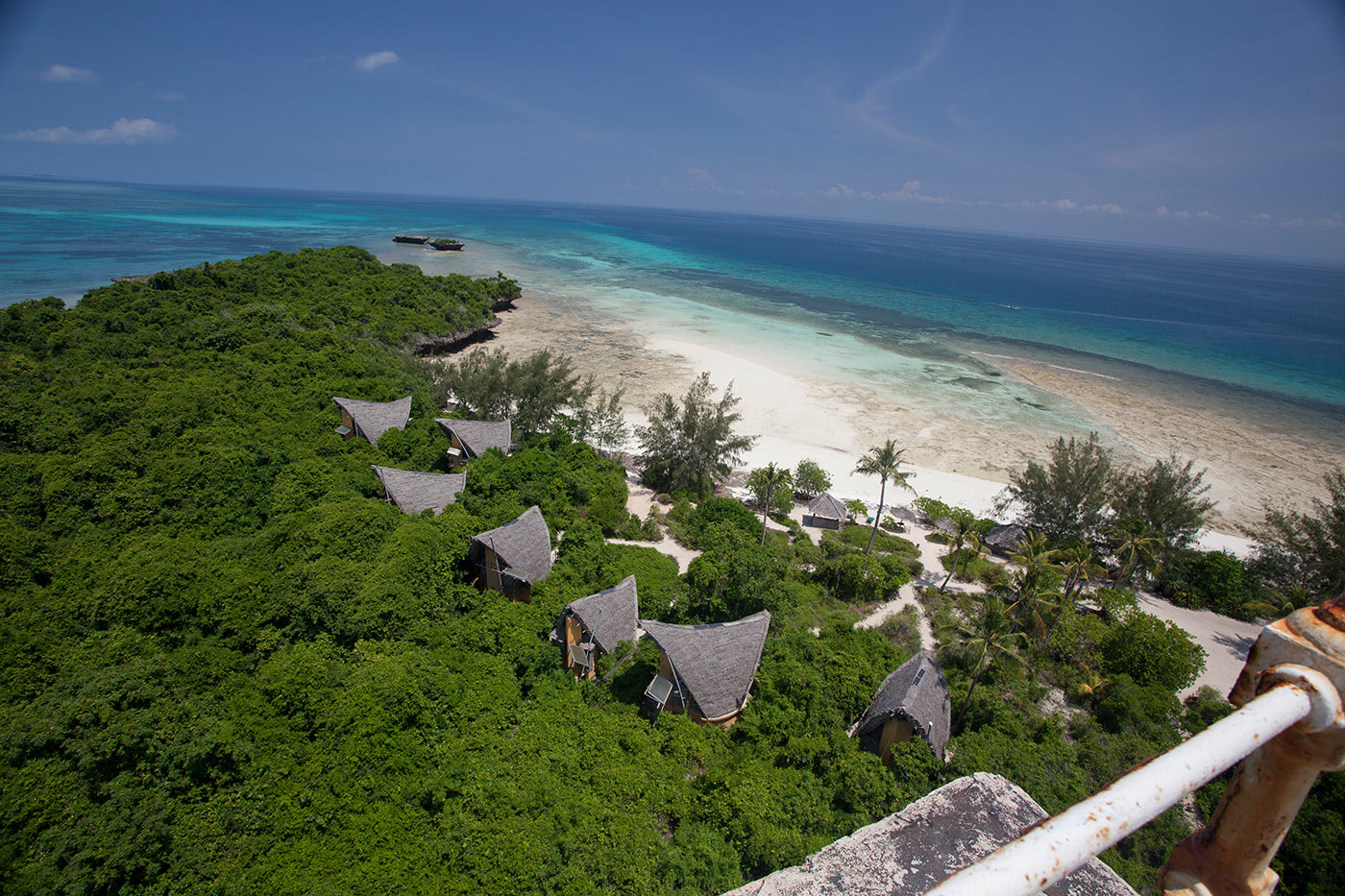
The eastern side of the island is host to 200 species of hard coral and 450 species of reef fish–a level of biodiversity rarely found along the over-exploited coastline of Tanzania. (Photo: Chumbe Island)
No stranger to the overseas aid industry, Riedmiller had plenty of experience in supporting developing countries through her time at UNESCO and GIZ, an organization funded by the German Federal Ministry for Economic Cooperation and Development, in Chile and Peru, respectively. Mostly managing education reform projects, her humanitarian achievements included introducing Bilingual Education for Quechua and Aymara schoolchildren in the Peruvian Highlands and introducing Agriculture as a subject in primary schools of the Tanga region in Tanzania. The very place she fell in love with coral reefs and where she now found her moment of enlightenment.
"I finally found this coral reef off uninhabited Chumbe Island, a small 0.09 square miles island southwest of Stone Town, Zanzibar. Fishing was restricted as small fishing boats would have obstructed vessels plying the shipping channel to the former capital of Tanzania, Dar es Salaam, and in addition, few boatmen could afford outboard engines to reach this most distant of the islets"
Over the following two months, she accompanied fishermen from Tanga in visits to their fishing grounds. The aim was to find a shallow reef that would still be reasonably healthy enough for conservation, suitable for a small marine park for snorkelers (for environmental education for local people), and most importantly, not heavily fished by local communities who depended on it for their survival. Eventually, she discovered the perfect spot.
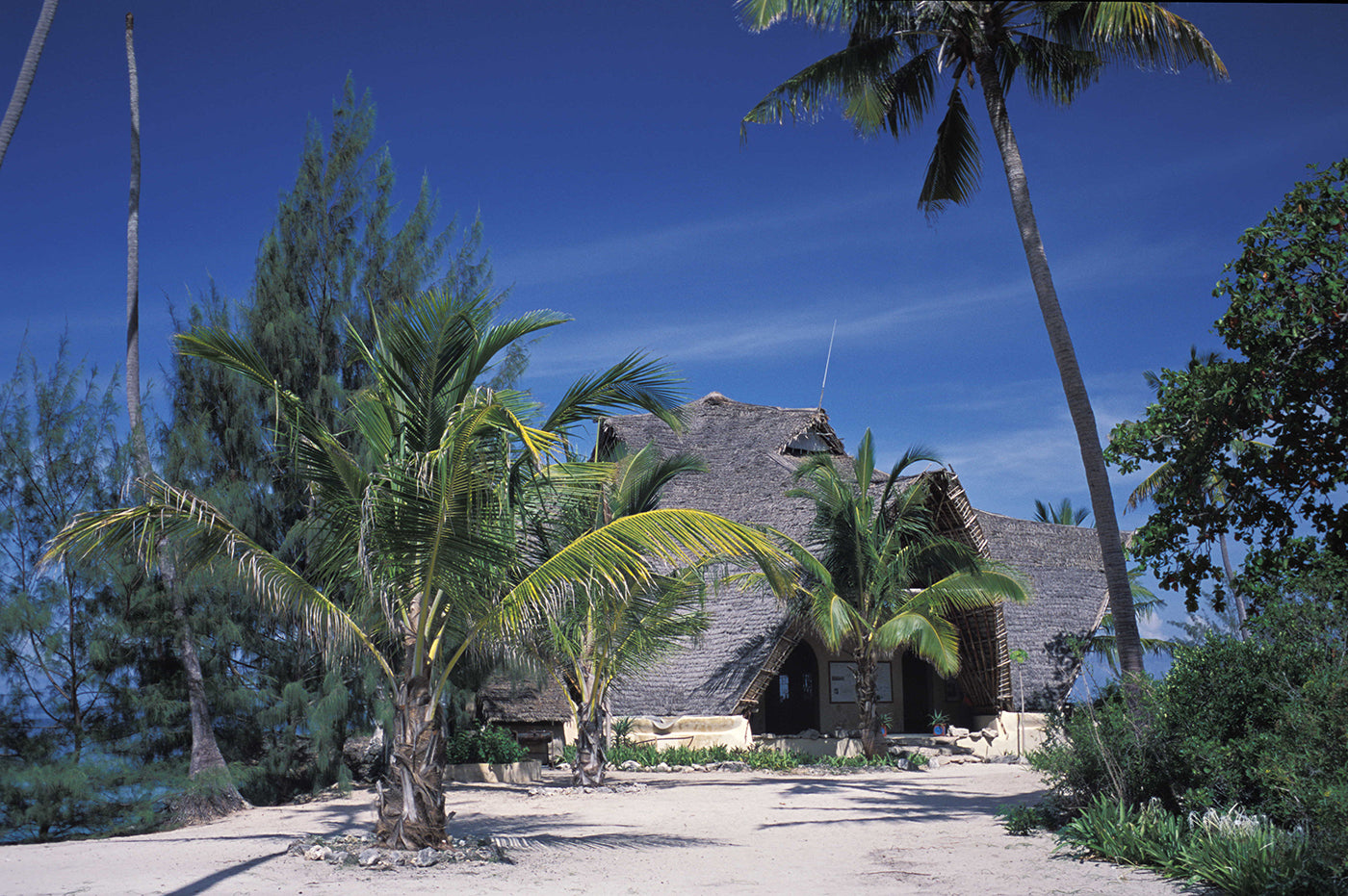
The bungalows on Chumbe Island resemble the hulls of ships emerging from the sand, like shipwrecks. Accommodation is basic, with a sleeping deck up top and space for relaxation below. (Photo: Chumbe Island)
The fringing coral reef was incredibly diverse and also shallow enough to be used for environmental education programs. As community food supplies wouldn't be affected, conditions appeared ideal for the creation of a marine park that depended on co-operation with locals rather than government enforcement.
Chumbe Island Coral Park, became the first marine park in Tanzania and is considered to be the first private marine park in the world. Over the past 20 years, nearly 7,000 secondary school students and 1,000 teachers from Zanzibar have participated in the island's comprehensive educational program. To this day, the ecotourism operations and environmental programs Riedmiller implemented in 1998 and 2000 are the only regular and large-scale programs of their kind in Tanzania.
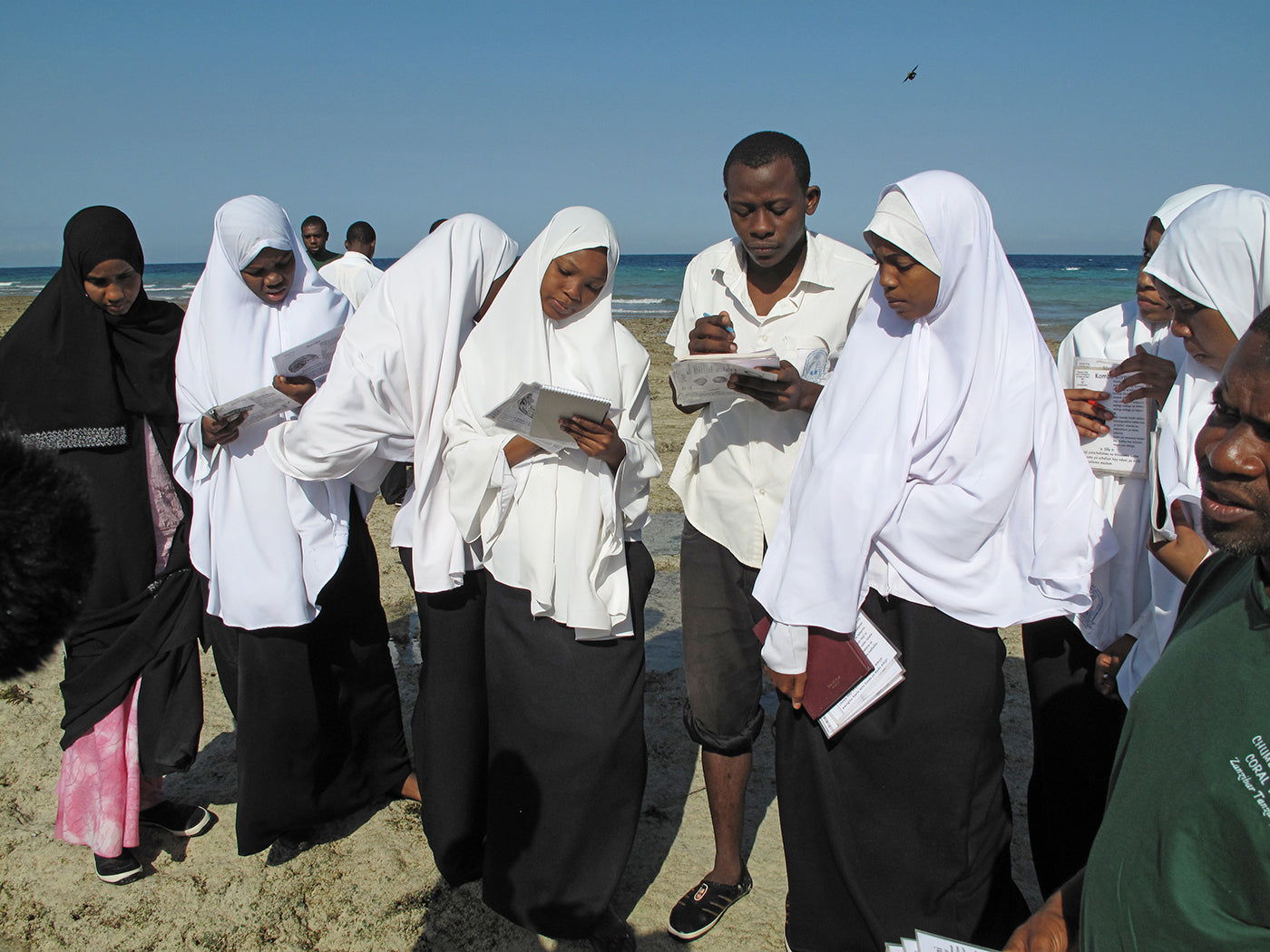
Normally, schools in Zanzibar rarely organize field excursions and few children have a chance to visit their local coral reef. (Photo: Chumbe Island)
Providing Sibylle with the valuable, and rather unique, resources to spend the rest of her life as a lobbyist for coral reefs, her tireless commitment to preserving Tanzania's natural heritage was recently rewarded with the Order of Merit Cross from the Federal Republic of Germany. To find out more about Chumbe Island and how Sibylle achieved her vision, we caught up with her for a chat.
Can you remember the first time you became aware of coral reefs and explain what you love about them in particular?
Well, I have always loved the sea and swimming from an early age, but had never had a chance to see a living coral reef until I moved to Tanga. I brought with me a catamaran, taught myself sailing, and went out to the sandbanks and islands every weekend, spending hours exploring and snorkeling over miles and miles of the fringing coral reefs.
"Since then I have spent many years of my life, floating effortlessly in the silky lukewarm water over the fascinating wonderland of living coral reefs. These extremely complex and fragile world of millions of colorful creatures of all shapes and forms are basically the rainforests of the sea … But this is over 20 years ago, and since then I've seen coral reefs continuously being degraded to an extent that I have lost much of my fascination for diving"
I still go out snorkeling nearly every day to a few remaining sites in the bay in front of my house in a small village, where I live, but I assume that many nature lovers of my generation harbor similar memories of paradises lost, in many cases forever.
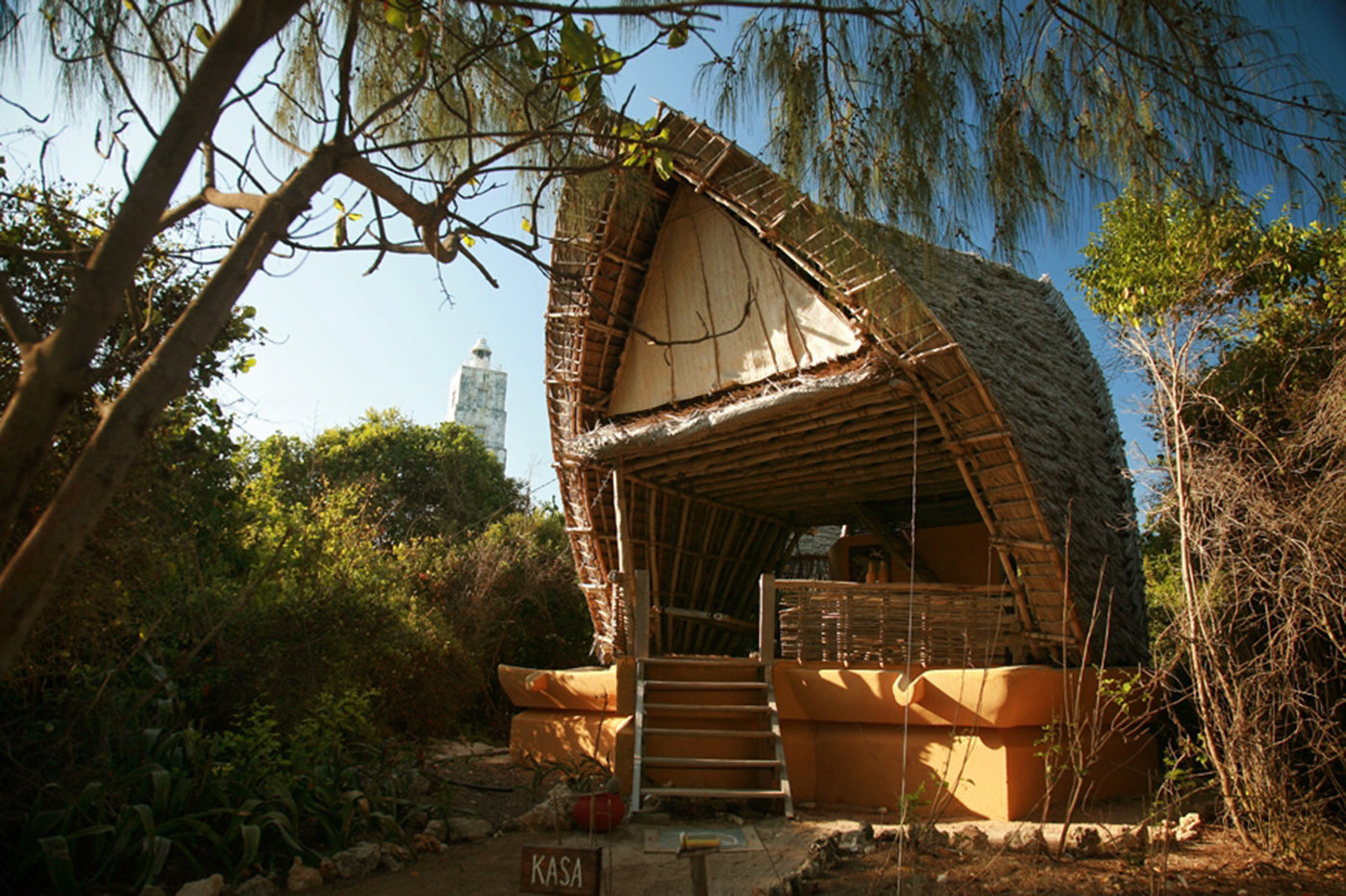
The resort comprises of the main lodge and seven bungalows, built to blend in with their surroundings. The buildings have low, sweeping roofs of pine and palm thatch. (Photo: Chumbe Island)
When people visit the nature reserve, what can they expect to experience?
Visitors to the island are offered a wide range of nature experiences, such as guided snorkeling along the marine trails, guided walks in the intertidal zone, mangrove cave and forest trails, accompanied by environmental exhibits and information in the Visitors' Centre. Accommodation is in 'Eco-bungalows' that demonstrate state-of-the-art technologies of zero-footprint water and waste management and energy provision.
"Our mission is to provide free of charge, environmental education for schoolchildren, teachers, fishers, community groups, and government officials through sponsored field excursions to the island"
How do you maintain the integrity of the ecosystem on Chumbe Island?
The objective of the project was, from the beginning, to create a model of financially, ecologically and socially sustainable Marine Park management. A place where ecotourism supports conservation, research, and environmental education for local people.
With conservation our main goal, the reef sanctuary is now home to some of the healthiest reefs in the region. There are more than 500 species of fish, 150 species of invertebrates, and 59 genera of hard corals recorded.
Likewise, the Forest Reserve is home to rare species such as the highly endangered Aders’ Duiker, a medium-sized antelope native to sub-Saharan Africa, and the rare Coconut Crab. The reserve is also managed in collaboration with the locals, who also benefit from improved fish stocks in the fishing grounds adjacent to the marine park.
You’ve been working on the island for around 30 years, what affects due to climate change have you witnessed?
Yes, we have witnessed climate change and our biggest concern is coral bleaching. Even with one of the most resilient reefs in the Western Indian Ocean region, widespread bleaching and 70% to 90% coral mortality occurred regionally as a result of high temperatures associated with severe El Niño Southern Oscillation (ENSO) in April and May of 1998.
However, even though corals in the Chumbe Reef Sanctuary suffered, they did so at much lower levels to other reefs, which researchers attribute to “few other stressors being present” (i.e. no fishing or destructive activities take place).
Sibylle and Chumbe Island feature in our title Bon Voyage. Focussing on extraordinary experiences around the world, the book explores how sustainable travel and hospitality can leave a more positive impact on the planet.
Browse Bon Voyage–Boutique Hotels for the Conscious Traveler here. Available in German and English.


